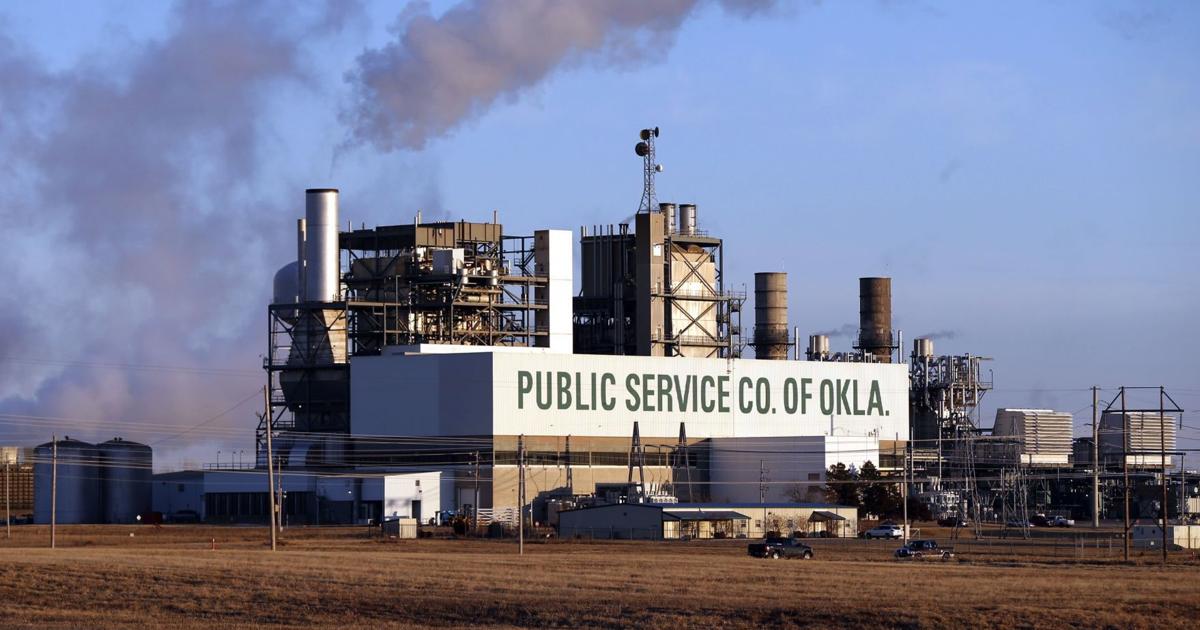
Steve Metzer
Tulsa World Capitol Bureau Staff Writer
Get email notifications on {{subject}} daily!
Your notification has been saved.
There was a problem saving your notification.
{{description}}
Email notifications are only sent once a day, and only if there are new matching items.
Followed notifications
Please log in to use this feature
Log In
Don’t have an account? Sign Up Today
OKLAHOMA CITY — Many Oklahomans would have to pay higher electric bills if the Corporation Commission approves a request made by Public Service Company of Oklahoma related to plans to increase its capacity for providing power to customers.
Average bills would increase by more than $10 a month if PSO is given the go-ahead to begin collecting money from customers to offset costs of new construction projects and several acquisitions of existing facilities that would come with a total price tag estimated at $1.2 billion.
A PSO filing at the Corporation Commission included testimony from the company’s vice president for regulatory finance, Matthew Horeled, who said PSO is beginning to face unprecedented demands for electricity. Without additional capacity to provide power, he said shortages would result.
“Commercial and industrial growth is being fueled by new customers coming on to the system with electric needs far greater than what PSO has experienced in the past,” Horeled said.
PSO currently has 11 customers under “Letters of Agreement” or contracts involving demands for 50 megawatts of power or more. The filing also noted that there are several industrial parks in PSO’s service area that are in late-stage negotiations for “large load” projects.
It added that the projects would add thousands of jobs to the state’s economy.
Neither companies nor types of industries were identified. Concerns have been raised in some communities about how much electricity data centers require to sustain operations.
“Specifically, PSO is requesting approval of eight generation resources to meet customer needs,” Horeled said.
One of the proposed projects was described as a $540 million natural gas facility to be located at PSO’s existing Northeastern Generation Station in Oologah. Seven other projects were listed, including a handful of existing wind power generation facilities. They were identified as:
Listen now and subscribe: Apple Podcasts | Google Podcasts | Spotify | Stitcher | RSS Feed | SoundStack | All Of Our Podcasts
Kiamichi – A 150-MW combined cycle natural gas plant in Pittsburg County. PSO proposed a capacity purchase agreement involving an existing facility.
Caddo – An 80-MW wind farm in Caddo County, which also would be a power purchase agreement related to an existing facility.
Weatherford – A 147-MW existing wind farm in Custer County.
King Plains – A 248-MW existing wind farm in Garfield and Noble counties.
Northeastern 1 & 2 – A 100-MW battery storage project in Rogers County. The project would involve a “purchase and sale” agreement involving new construction.
Rock Falls – A 50-MW battery storage project in Grant County, also a purchase and sale agreement involving new construction.
Dover – A 74-MW battery storage project in Kingfisher County, another purchase and sale agreement involving new construction.
And Northeastern 5 & 6 – a 450-MW natural gas combustion turbine in Oologah involving new construction.
Passage of Senate Bill 998 earlier this year by the Oklahoma Legislature paved the way for utilities to begin recovering “construction-work-in-progress” expenses prior to the commercial operation of a new or newly expanded natural gas facility. The measure also shortened the length of time the Corporation Commission would be allowed to review expansion or construction plans.
All three corporation commissioners opposed SB 998, saying it would force consumers to take on risks related to utility company investments while not realizing any benefit potentially for years.
Prior to the bill’s passage, commissioners aired several concerns about it, including that it would impose potentially harmful limitations on regulatory oversight and scrutiny of utility providers. They cited a similar law passed in Kansas that led to ratepayers facing significant monthly bill increases.
“SB998 only benefits the utility company at the expense of the ratepayer, who will be forced to fund these projects prior to receiving the benefits,” Commission Chairman Kim David said in a media release.
In its filing, PSO said that if its generation resource portfolio isn’t expanded it would anticipate a deficiency in its ability to meet the summer needs of customers beginning as early as 2027.
The company proposed that it should be allowed to defray development costs under provisions of SB 998.
If the requests are granted and PSO customers must start paying $10.34 more on their monthly bills, the added cost won’t be permanent.
“(It) is based on PSO’s filing,” a Corporation Commission spokesman said in an email. “The actual cost to customers will last only as long as each project is being depreciated, which depends on its useful life. Once a project is fully depreciated, those costs drop off bills. However, some ongoing operations and maintenance related expenses could continue.”
The procedural schedule on how PSO’s request will go forward, including hearings that would allow for public comment, has not yet been set.
steve.metzer@tulsaworld.com
The business news you need
Get the latest local business news delivered FREE to your inbox weekly.
* I understand and agree that registration on or use of this site constitutes agreement to its user agreement and privacy policy.
Steve Metzer
Tulsa World Capitol Bureau Staff Writer
Get email notifications on {{subject}} daily!
Your notification has been saved.
There was a problem saving your notification.
{{description}}
Email notifications are only sent once a day, and only if there are new matching items.
Followed notifications
Please log in to use this feature
Log In
Don’t have an account? Sign Up Today



